#Mary Hopkin
Text

Mary Hopkin, 1968.
161 notes
·
View notes
Text
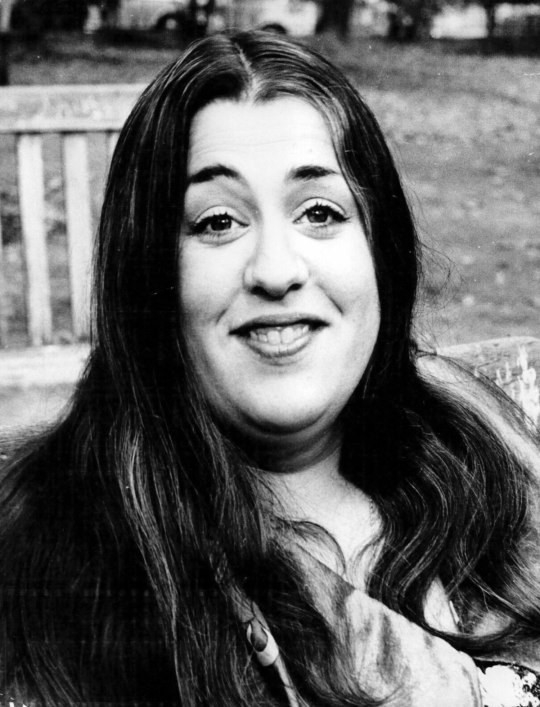

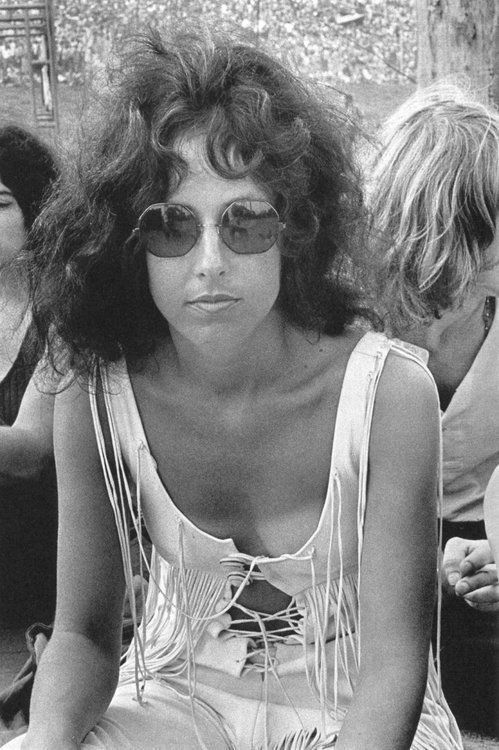
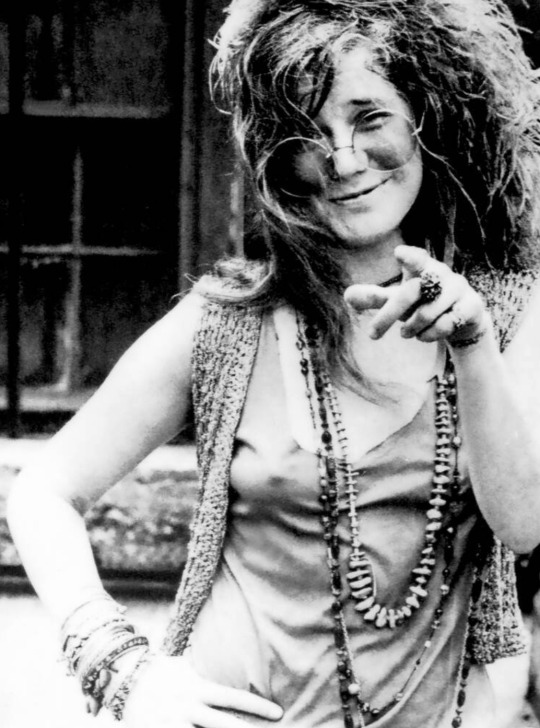
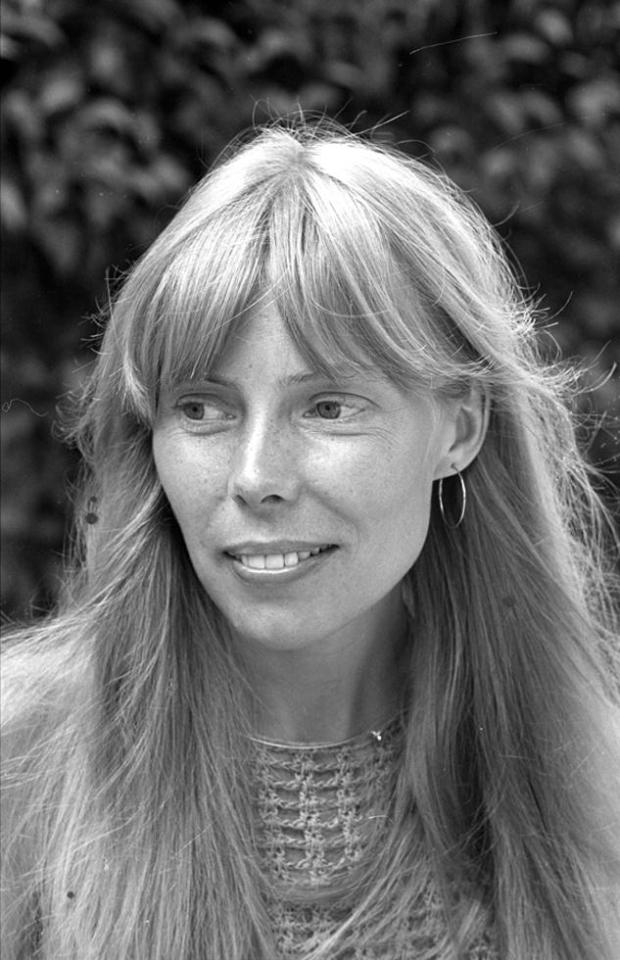
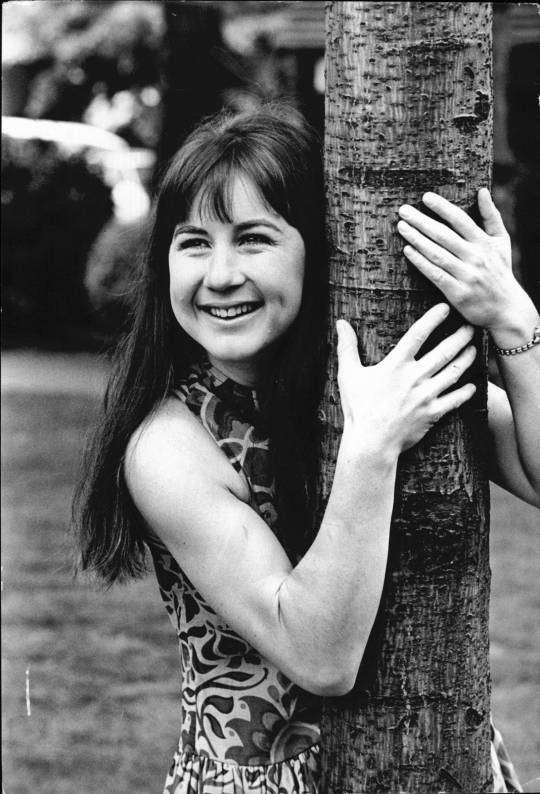
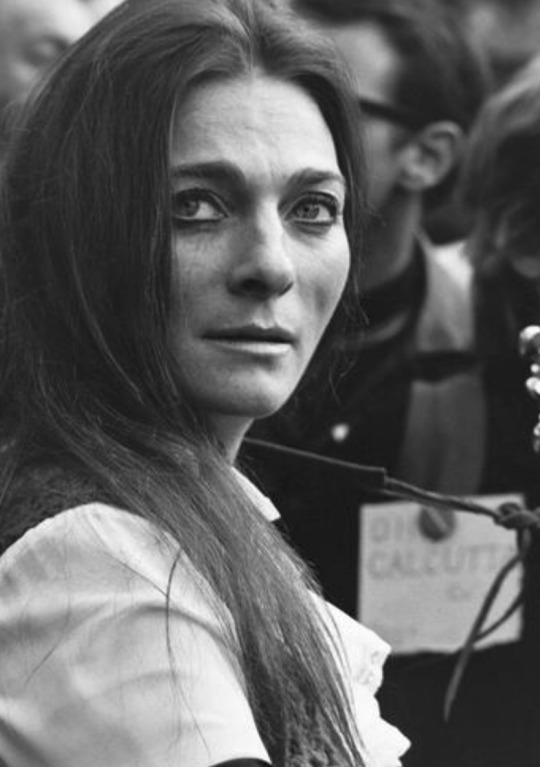
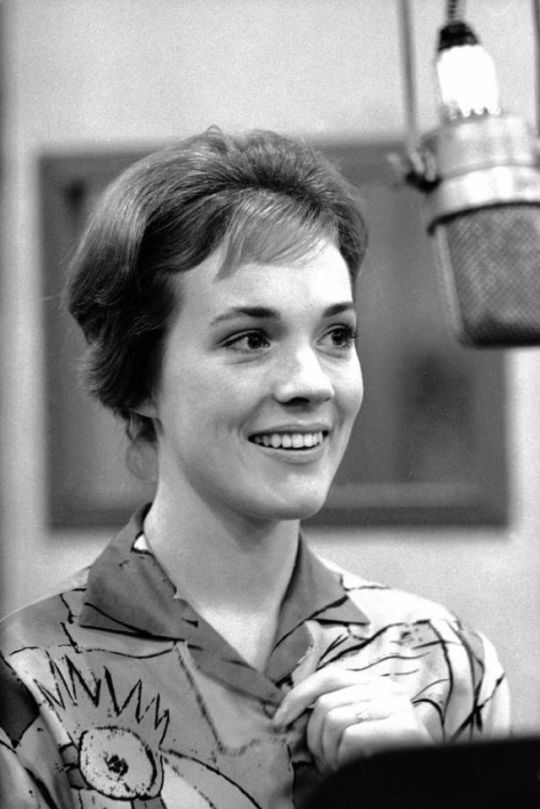
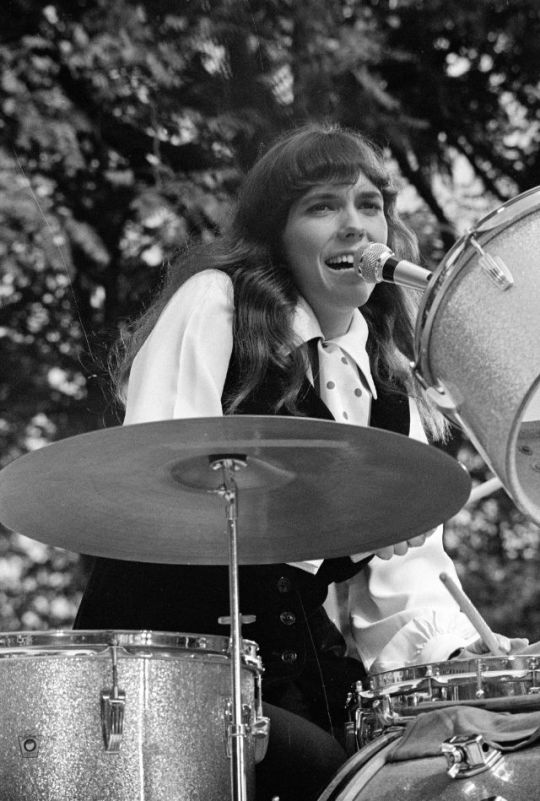
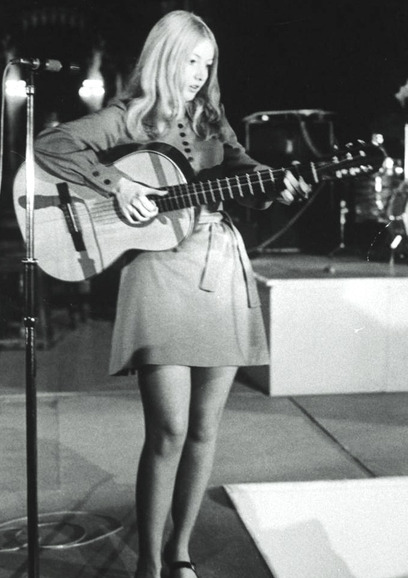
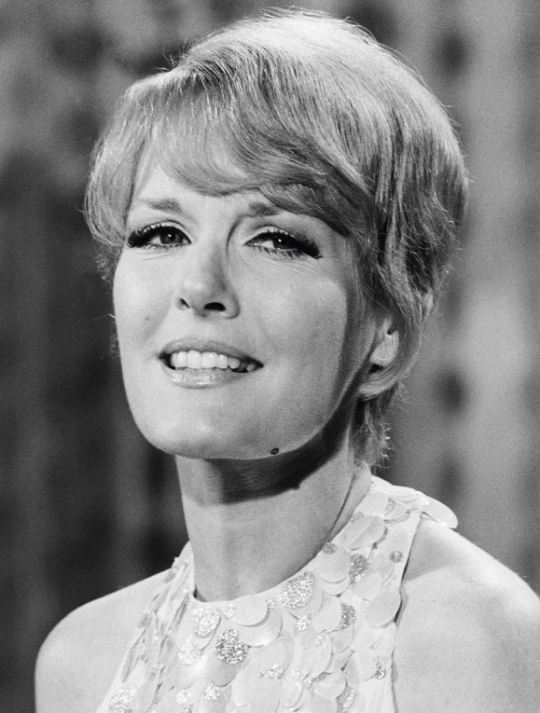
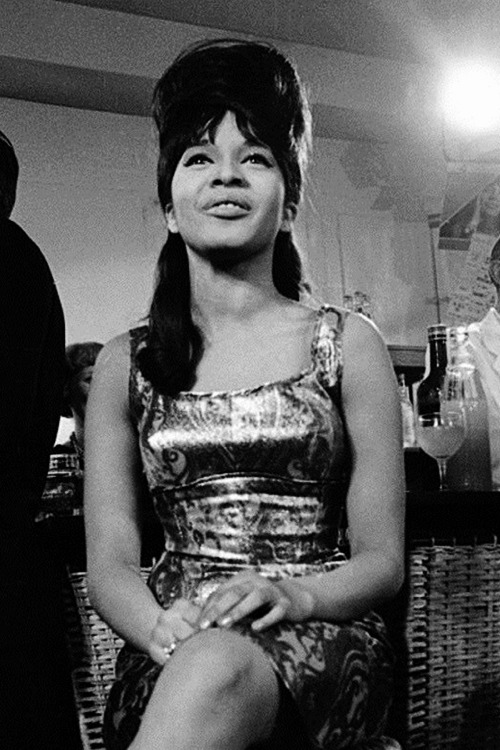
before International Women's Day was over I wanted to put together a little tribute to my favorite women in music. These ladies' voices have shaped my life and helped me discover the sound of my own!
Cass Elliot | Dusty Springfield | Grace Slick |Janis Joplin | Joni Mitchell | Judith Durham | Judy Collins | Julie Andrews | Karen Carpenter | Mary Hopkin | Petula Clark | Ronnie Spector
#Cass Elliot#Dusty Springfield#Grace Slick#Janis Joplin#Joni Mitchell#Judith Durham#Judy Collins#Julie Andrews#Karen Carpenter#Mary Hopkin#Petula Clark#Ronnie Spector#International Women's Day#women in music
133 notes
·
View notes
Text
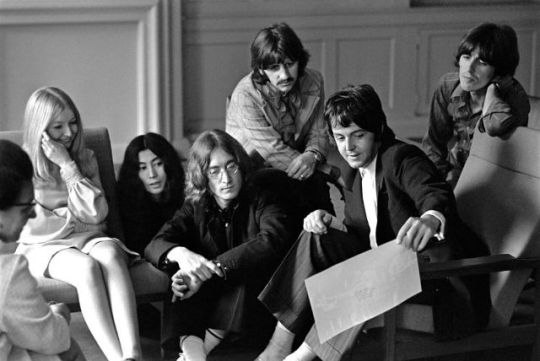
Mary Hopkin, Yoko Ono and the Beatles
110 notes
·
View notes
Text
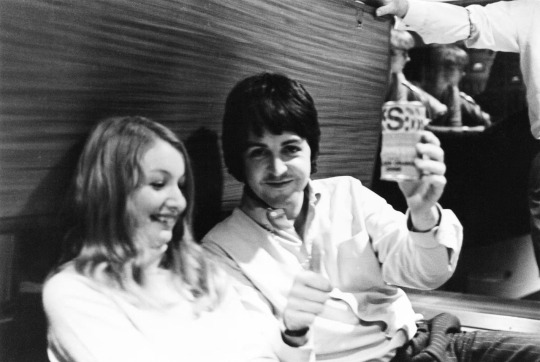

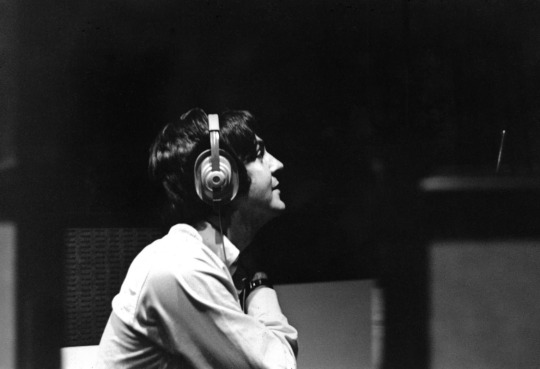
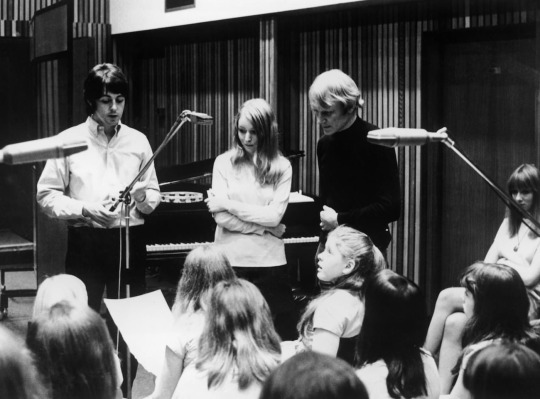
Paul McCartney with Mary Hopkin recording “Those Were The Days” at Abbey Road Studios for Apple Records.
32 notes
·
View notes
Text
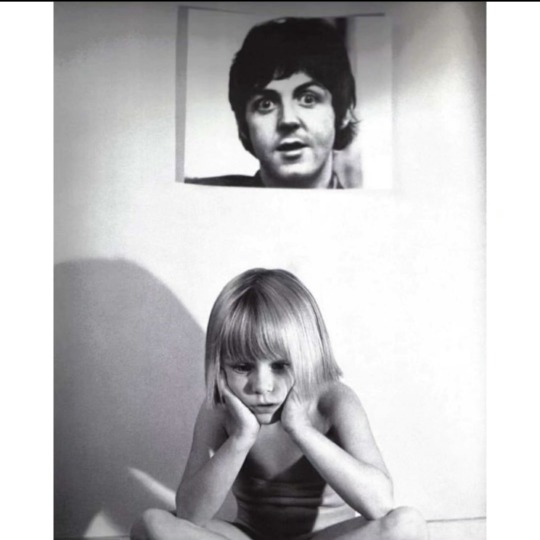
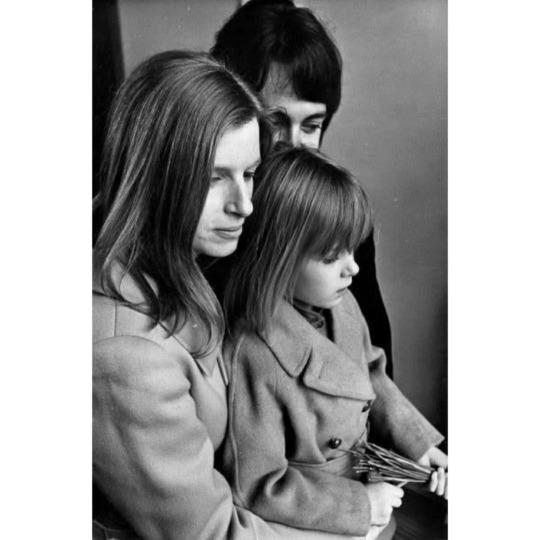
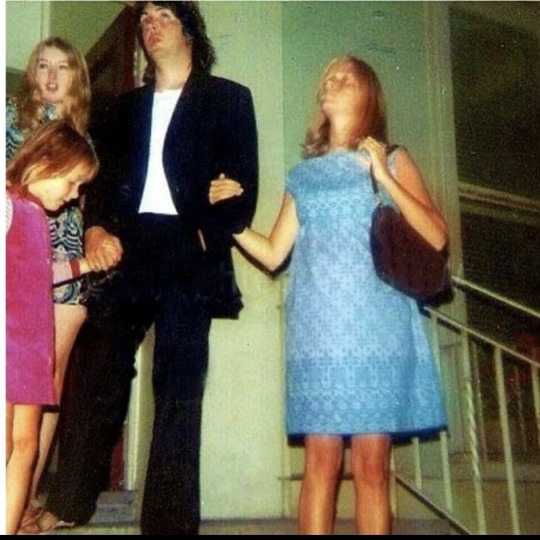
“And then I got a phone call: 'Why don't you come over?' It was september (1968). I remember Heather was just going to start Dalton and my parents were so furious with me. She got into Dalton. It would have been great. It was really good for Heather; I wish she had had that kind of life, instead of this crazy life. Dalton and then do well at school, go to university, whatever. But I had no feeling of responsibility, I must have been quite irresponsible to think that a five-year-old kid is starting school for the first time, and I'm buzzing off leaving her... I was led to feel guilty by my parents, my father and stepmother. I'm going to London now, so I get on the plane.” Linda McCartney from "Many Years From Now" by Barry Miles.🌼🌼🌼
📸1. Heather at Linda's apartment, NYC 1967. Linda Eastman.
📸2. Linda with Heather and Paul on their wedding day in London, 12 March 1969. Getty Images
📸3. Heather with Paul and Linda and Mary Hopkin at EMI Abbey Road Studios entrance, London 1969. Shot by a fan
Via @maccalover66 on Instagram🌼
#60s icons#girlsofthesixties#60s couples#the beatles wives#paul mccartney#linda mccartney#heather mccartney#mary hopkin#1968#1969
39 notes
·
View notes
Text
George Picture of the Day 1-19-24

Paul and Mary Hopkin. I shall say no more.
Thank you to owner.
24 notes
·
View notes
Text
"Paul tried to persuade Mary [Hopkin] how easy it would be for her to write her own hit songs. Somewhere in London and I just cannot remember where, I watched as Paul said to Mary, 'Look, it's easy.' He flipped open the lid of a grand piano which was conveniently poised on a dais nearby. With his left hand he rumbled out some Jerry Lee Lewis-style boogie chords, and sang:
'Ahhh, the big black piano is sitting in front of meeeee.'
I can hum the tune to this day.
'You see? He said, turning to us. 'How easy it is to write a song?'
Mary and I, the only people present except Linda, who was snapping away from the back of the room at the pair of them, looked sceptical.
Then I realised that Paul McCartney probably didn't know or realise that not everyone had his facility to compose instant hit pop songs."
Annie Nightingale, Hey Hi Hello: Five Decades of Pop Culture from Britain's First Female DJ
#remembering paul being all 'unless you stop yourself there's no stopping yourself' in get back#when talking to the clapperboard assistant about songwriting#i know he teaches songwriting at lipa and frankly the mind boggles#and i completely believe the piano song tune is an indelible earworm too#annie nightingale#mary hopkin#paul mccartney#linda eastman#linda mccartney
312 notes
·
View notes
Text




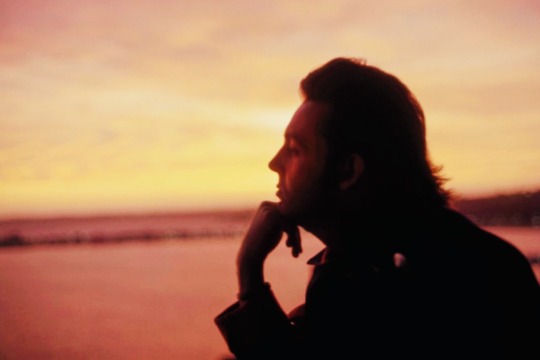
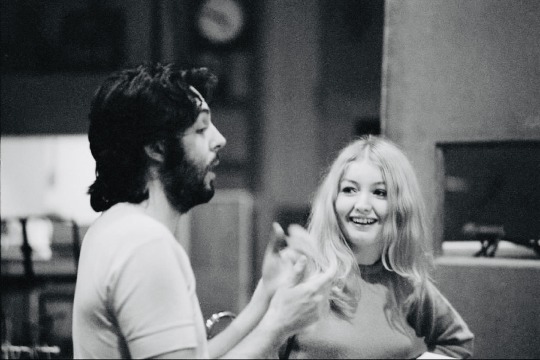


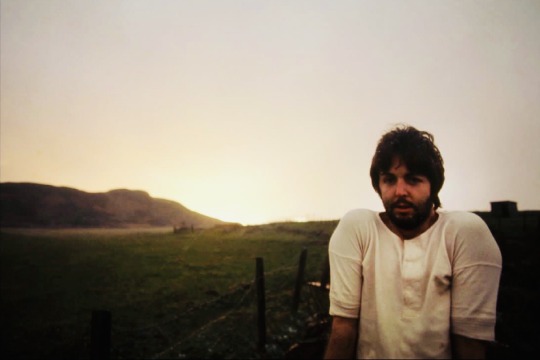
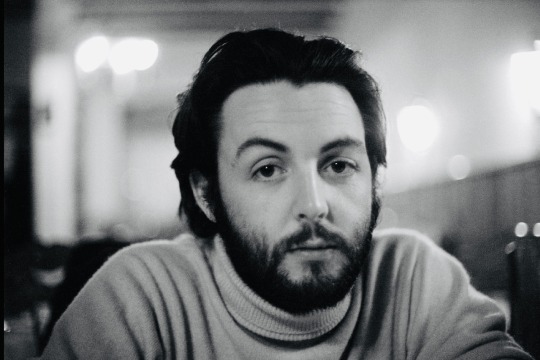
Paul McCartney by Linda McCartney Part ✌🏻
I love the way Linda held a camera. It looked very elegant; she cradled it. I’ve seen other good photographers do that: they caress a camera.-Paul McCartney
#Paul McCartney#Linda McCartney#the Beatles#mary hopkin#Heather McCartney#Mary McCartney#Stella McCartney#photography with Linda#Paul McCartney: a series#things paulie said
248 notes
·
View notes
Text
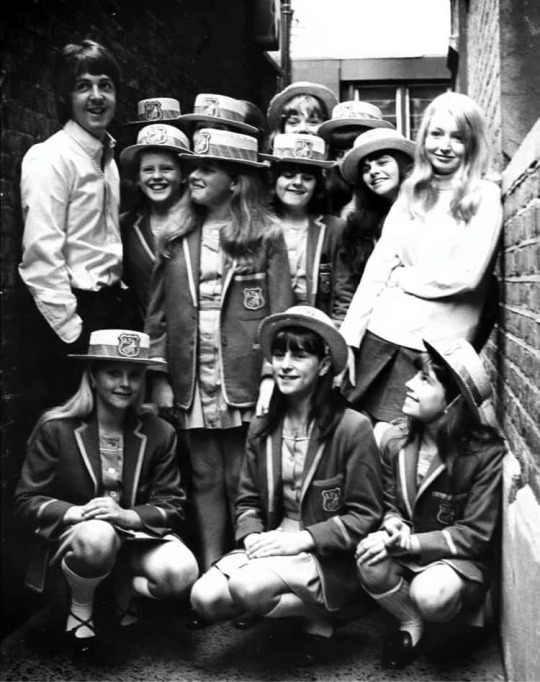
Paul McCartney with Welsh singer Mary Hopkin recording her UK number one hit “Those Were the Days” with the Aida Foster Children’s Choir in July 1968.
10 notes
·
View notes
Text
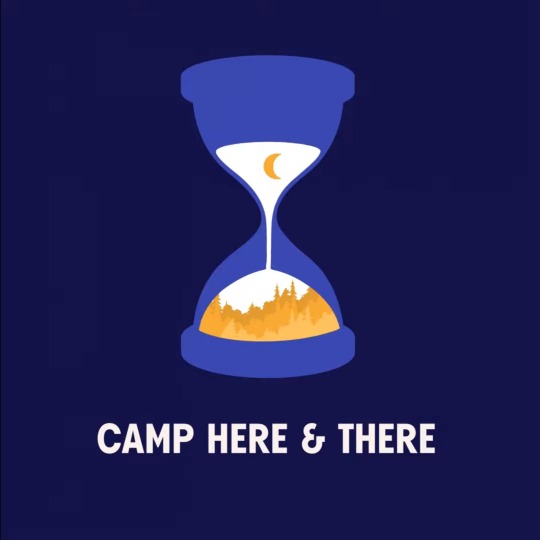

When Somebody Needs You (Will Wood)
We’ll meet in the middle like pistols at dawn/Turn our backs, who's counting pace?/When the smoke clears are we friends?/Or strangers again?/Just a familiar face/Well aren’t we “us” sharing pronouns now?/So how could we separately heal?
"It feels like growing apart from someone that you knew so well that you were one person, a pair a group ya know? the mourning of it but also knowing that you can’t really control how people grow and change"
Those Were The Days (Mary Hopkin)
Once upon a time there was a tavern/Where we used to raise a glass or two/Remember how we laughed away the hours/Think of all the great things we would do?
"I asked my dad and this was one of the two he had. He remembers what he was doing when the song came out and I suspect he’s also a bit bitter sweet cuz he’s moved around/changed in appearance enough that he doesn’t feel he would be able to go into an old hangout spot and reminisce with his old friends."
13 notes
·
View notes
Text
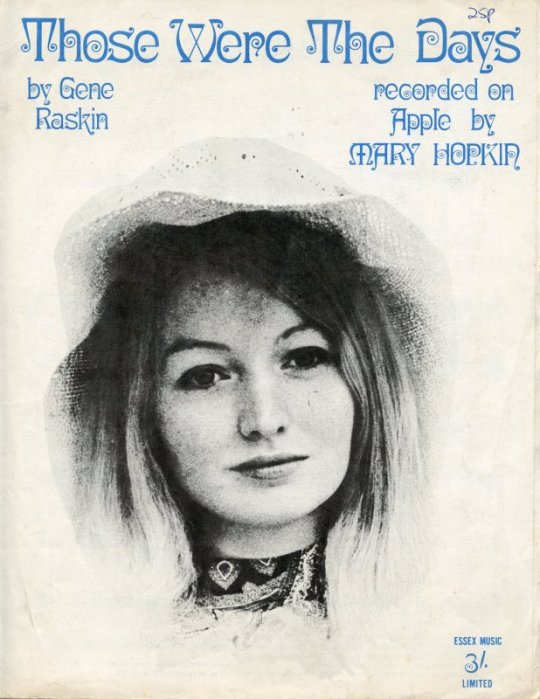

youtube
mary hopkin - those were the days
1968

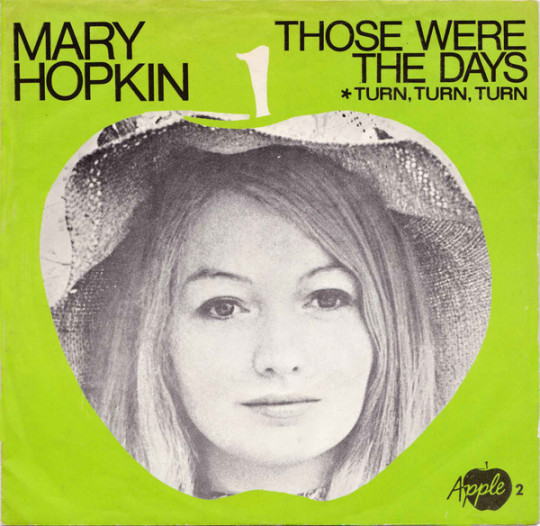
12 notes
·
View notes
Text
How did Paul react to John's rejection with songs?
Whether or not traditional Beatles scholars like it, John and Paul didn’t lose their bond in 1968. Their emotions were still hot, albeit more complex, and they reacted to each other. And since they were musicians, the best way was to write songs. John reacting to Paul's behavior with songs is a known case (see: I'm so tired, Jealous guy, Instant Karma ect.). However, little is said about the fact that Paul also responded with music to John's behavior. Today I wanted to focus on how McCartney reacted to Lennon's rejection (not always romantic) because that seems particularly interesting to me.
JUNK
It had been perfectly described by Better than looking at the mirror HERE. Let's look at the 1968 Lennon/McCartney timeline: Mid-February - The Beatles arrive in India. 26th March - Paul leaves. 12th April - John leaves. After that, he's absolutely mentally devastated and overuses drugs. Certainly, there are a lot of reasons for that, the most important being John's mental disorders which are not treated properly. But also, his relationship with Paul seems to be a significant factor. Something wrong happened between them in India. There are quite a few theories. The most popular is Lennon declaring his romantic and/or sexual affection to Paul and Paul rejecting him (and in a way, John himself suggested erotic tension between them). I think it's possible and I name the second thing: Paul leaving India so early. John was in a terrible mental state, he even wanted to kill himself. And most likely McCartney didn't support him, which left Lennon heartbroken and dissapointed (perfectly valid). However, we are also uncertain whether John made it clear to Paul that he needed help. Probably not, because he believed he and Paul were telepathically connected and knew all about each other.
May 11th to May 16th - John and Paul are in New York to promote the Beatles new company, Apple. There are a lot of audio and video footage of them: they gave the interview to US press on 13th May, they appear on Tonight Show, on Apple press conference, and gave the radio interview to Mitchelle Krause which was later aired on the program „Newsfront” (all 4 meetings happened on May 14th). IMO the negative tension between Lennon and McCartney in palpable. John in frustrated and annoyed and Paul seems evasive and like knowing he somehow fucked up. What's more, on the radio interview John seems to be giving a hint about "forbidden love" for which the public is not ready, and we can hear Paul feeling uncomfortable about it. During their stay McCartney meets Linda Eastman, a photographer he talked a year earlier with. On the final day, he invites Linda to go with him and John to the airport. She does it and takes a few photos of them. John later (in 1970) expressed he felt very uncomfortable with Linda's presence.
May 19th - depressed John consumes LSD, has a bad trip and gets together with Yoko (who helps him to "rebuild his ego"): they spend their first night in John's house and record their first avantgarde album. 3 days later they make their 1st public appearance as a couple. 30th is the 1st day of White Album sessions. And it this gap between 16th and 30th May Paul completed "Junk" (which can be heard on Esher demos). As Paul said about the lyrics: "Sounds like one lover saying “bye, bye” and the other plaintively asking “why, why”, even as the junk in the yard demands an explanation for the urge to acquire something – or somebody – new". It's easy to see that Macca was putting his current emotions into a song. With John commiting to a new lover - who he valued so high that they appear publicly, despite having a wife - Paul might feel like a discarded "Junk" and expressed it. I'm not saying it was the only reason for his low frame of mind at the time but clearly one of the most important.
GOODBYE (here's the official version)
The track, written by Paul and performed by Mary Hopkin, was released at March 28th, 1969. As we can read on Wikipedia, "[the song] was written in a great hurry to capitalise on Hopkin's popularity". It means that Paul wrote in probably in March 1969. And you know what also happened in March 1969? Lennon and McCartney's weddings. Paul and Linda got married at March 12th and John and Yoko at March 20th. If someone read Paul's feeling towards John as purely platonic, they would think that Macca started a new family and it had nothing to do with Lennon. But that's not my opinion. And it's not a coincidence that John decided to got married right after Paul (he organised wedding in a hurry). Both men ended the month with a thought: "We have new life partners now". I'm not implying John and Paul were physical lovers (I don't exclude that option tho) but there certainly was some romantic tension and a hope to push their relationship further, at least from John's side, and I suppose partially from Paul's (sometimes I think differently, let's leave that lol). But it didn't happen. So McCartney is writing a farewell song. "Goodbye, my love, goodbye". I linked a demo of this tune, performed by Paul, and it's interesting to hear him singing: "Far away my lover sings a lonely song and calls me to his side".
DEAR FRIEND and LITTLE LAMB DRAGONFLY
In December 1970 John gave an interview to „Rolling Stone” journalist Jan Wenner; the interview later appeared as the book "Lennon Remembers". John spoke in an unpleasant, even brutal way. It’s worth noting that he was then under the influence of Arthur Janov's primal scream therapy. Janov was a homophobe and John took over his language, insulting with homophobic terms e.g. Mick Jagger and Brian Epstein. What’s more, John harshly criticizes Paul and the Beatles (calling them a „myth”). He says that Paul’s first solo album is „rubbish” and claims that McCartney during Beatle years was a conformist and cared only about the commercial side of songs. Lennon’s complaints are also about Paul being controlling and egoistic.
We can imagine how hurt Paul felt after reading this interview. He was judged very severely: his flaws were exaggerated, and his contribution to the development of the Beatles (e.g. interesting John in the avant-garde or the use of tape loops on "Tomorrow Never Knows") was not even mentioned. It must have been terrible wound and massive rejection of his talent and creativity.
Paul, as usual, poured his emotions into songs. In response to John's poisonous comments, he wrote „Dear Friend”. It’s likely he also wrote "Little Lamb Dragonfly" at the same time (late 1970). Interestingly, Paul decides not to attack Lennon.
In „Dear Friend”, he tries to approach him with understanding. As John's closest friend for many years, Paul knows his insecurities perfectly. He asks: „Are you afraid, or is it true?”. The most interesting line is: „Dear friend, throw the wine, I’m in love with a friend of mine”. It is very puzzling and unclear. Why does Paul use the word "friend" two more times? Maybe he assures John that he is still in love with him? Or maybe there are two friends – John („Dear friend, throw the wine”) and Linda („I’m in love with a friend of mine”)? If the latter interpretation is true, Paul is delicately trying to reassure John that he genuinely loves Linda and his family, so he’s not going to abandon them for John, but they can still be friends. Maybe this is: "We are both happily married and we can maintain platonic relationship”?
IMO "Little Lamb Dragonfly" has darker lyrics and expresses disappointment. „I have no answer to you, little lamb, I can help you out, but I cannot help you in”. Paul sees John as trapped by his negative emotions. As long as he doesn't want to change his attitude, no one else will help him. However, Paul admits that he loves John: „My heart is breaking for you, little lamb”; „Since you’ve gone, I never know, I go on, but I miss you so”. What’s more, McCartney still hopes he and his best friend can reconnect: „You and I still have a way to go”. But for that to happen, both sides have to want it!
„Dear Friend” was released on „Wild Life” album in December 1971. Probably the song influenced John's feelings. Later that month, Paul, Linda, John and Yoko met and agreed that they would no longer argue in public. "Little Lamb Dragonfly" appeared on "Red Rose Speedway" album in April 1973. And that time, John and Paul had a good relationship again.
CALL ME BACK AGAIN
It’s a well-known fact that during „Lost weekend” (John and Yoko’s separation, which covered 18 months between 1973 and 1975) John and Paul re-developed their friendship. They had a jam session in March 1974. Lennon even seriously considered writing songs again with his former partner. Paul also missed his best friend. When John, May Pang, Paul and Linda met in New York in 1975, Macca revealed they are going to New Orleans to record. „We’d like to meet us there”, he told Lennon. John, of course, wanted to go there. He was very excited and wrote the song "Howling at the Moon". Unfortunately, before John and Paul could reconnect, Yoko called and told her husband he could go home now.
It’s obvious that „Call me back again” – a song which appeared on 1975 Wings „Venus and Mars” album – is about that situation. Paul recalls growing up together with John. "Well when I, when I was just a little baby boy / Every night I would call, your number brought me joy" - quite an obvious reference to the teenage years, when John and Paul spent every free moment with each other and loved to talk to each other.
But this song is not nostalgic nor joyful. It expresses desperation and pain.
"I called your house, every night since then / But I ain't never, no no never heard you calling me" - probably a reference to the fact that Yoko was controlling John's contacts with his friends and whenever Paul, Mick Jagger or some other acquaintance tried to contact John by phone, she lied that her husband couldn't come over now. And then, of course, she didn't say anything to him.
"Come on and call me / Ooh boo boo boo babe" - Paul missed John so much! At some concerts, Paul would quietly pronounce his name during the song.
Interestingly, "Call me back again" contains a mellotron that sounds like flutes. Maybe Paul is referring to „Strawberry Fields Forever” intro here???
I know I have only touched on the topic a bit here. I’m aware I have very briefly described the Lennon-McCartney dynamics. Treat this post as a stimulus to your own research! <3
#mclennon#analysis#speculation#essay#the beatles#john lennon#paul mccartney#lennon mccartney#romantic friendship#friendship#kinship#queerplatonic relationship#queer love#love is love#mary hopkin#wings#yoko ono#linda eastman#all these songs are amazing tbh
112 notes
·
View notes
Text

Mary Hopkin is a Welsh singer-songwriter (1968)
18 notes
·
View notes
Text
"Those were the days", Mary Hopkin
1968
Written by Boris Fomin and Gene Raskin
One of fifty posts in Let's Do It, my personal favourite singles from 1954-76.
Take the tune from a Russian romance song, and discard the words. Add a fresh lyric written by an architecture lecturer. Have it sung by a gamine nymphet from OpKnox, and get top pop star HRH Sir Paul McCartney in to produce it. Release it through Paul's label, and watch the royalties roll in.

OK, we're being a bit snarky. "Those were the days" works because it's a bit exotic, the trills and arrangement in the introduction tell us how the song isn't foursquare rock 'n' roll. It works because Mary Hopkin is a tremendous singer, uses her voice to conjure up a spell, a vision of the scene. And it works because the lyric fits, tells a story and meshes perfectly with the tune.
Perhaps the only dissonant note: Mary is young, and she's singing an old woman's song. She later reflected, "Maybe that's what worked with the song, the fact that I was almost a child, singing an older woman's song. That's what people liked about it. But I felt privileged to have been given that song by Paul." She revisited "Those were the days" in 2018, worth a listen.
youtube
#mary hopkin#those were the days#1968#paul mccartney#apple records#opportunity knocks#russian folk song#Youtube#let5d0it#let's do it#pop music#20th century#1954-1976
5 notes
·
View notes
Text
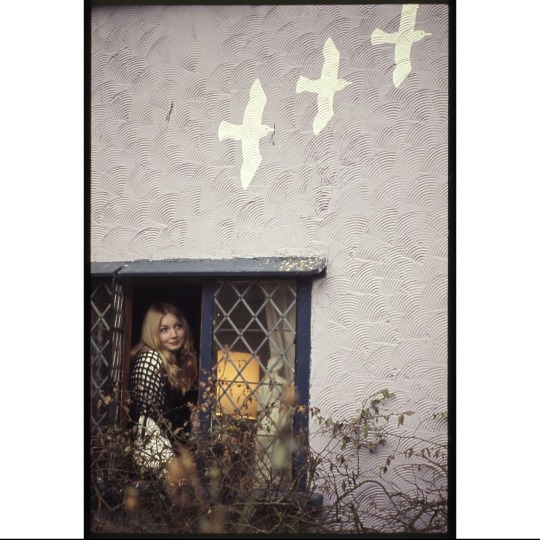
Mary Hopkin. London, 1969🍁
Via @lindamccartney on Instagram🌼
94 notes
·
View notes
